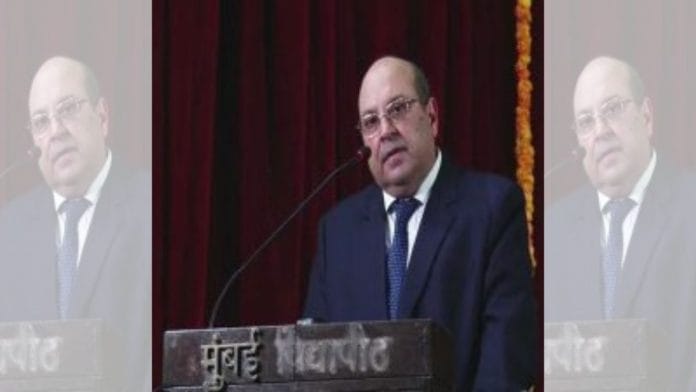New Delhi: At the 16th K.M. Bashir Memorial Lecture, former Supreme Court judge Justice R.F. Nariman suggested that the Supreme Court must revisit its 1977 judgment in the Reverend Stainislaus case which held that the right to propagate religion does not include the right to convert a person of another religion. Justice Nariman said that the anti-conversion laws enacted by many states draw support from this judgment.
He pointed out that secularism was a stepping stone towards achieving fraternity. He spoke at length on the basic tenets of secularism, including that all individuals are equally entitled to freedom of conscience and to ‘practice, profess and propagate religion’. In this context, Justice Nariman raised the 1977 decision of the Supreme court in the case of Reverend Stainislaus v. State of Madhya Pradesh.
Justice Nariman said, “…propagate was not there originally in Article 25 (of the Constitution). It was added at the instance of K.M. Munshi because he expressly said, look at our Christian community. It is fundamental to the Christian community to be able to convert, to be able to bring persons over so that they can be saved. ‘Propagate’ was brought, but unfortunately the Supreme Court in 1977 in the Reverend Stainislaus Judgment… held that propagate does not mean the right to convert. it only means the right to say something about your faith, which in any case is subsumed in… the right to freedom and expression. The result is a spew of legislations all over the country. Even (when) conversion is not by force, intimidation, etc,. but merely by means of persuasion, (it) is sought to be interdict (prohibited). This is something the Supreme Court ought to revisit at the earliest.”
The SC judgment in 1977 had upheld the anti-conversion laws that prohibited forced conversions, making it a penal offence.
In this backdrop, ThePrint explains the case and what it dealt with.
The judgment in the case came on two different appeals—one against a Madhya Pradesh HC judgment and the other on the Orissa HC judgment. Though the two appeals arose separately, the top court chose to club them since the two had a common legal issue to decide—the meaning of ‘propagating’ one’s religion, whether the state can promulgate an anti-conversion law and if it would be an affront to the principles of secularism.
While the MP HC judgment concerned the Madhya Pradesh Act 1968 the one from Odisha was related to the Orissa Freedom of Religion Act, 1987.
In the case from MP, Rev. Stainislaus was prosecuted for forced conversion, as well as for not informing the district magistrate about the conversion performed by him.
He took up the matter with the local authorities and then moved the MP HC when he did not get any relief. There he questioned the state legislature’s power to make laws on a subject that fell within the Union list. He also argued that the state law violated Article 25 (fundamental right to freedom of religion) of the Constitution.
The MP HC, however, upheld the decision to prosecute him. It said the provisions of the Madhya Pradesh Act, 1968, did not violate Article 25 of the Constitution, instead it ensured religious freedom to those who might be susceptible to conversion by force, fraud or allurement.
It also upheld the state legislature’s power to make such laws as it falls within the scope of the state list.
The cases in Odisha also challenged the power of the Orissa Freedom of Religion Act, 1987. But the Orissa HC took a divergent view, and declared the law unconstitutional.
The conflicting decisions of both the High Courts raised a common question of law on the fundamental right to freedom of religion.
The top court upheld the constitutional validity of the two acts in question and set aside the Orissa High Court Judgment, whilst upholding the decision of the MP HC.
The Supreme Court said the usage of the word ‘propagate’ in Article 25 of the Constitution does not include the right to convert, instead it merely comprises the right to spread one’s religion by expounding its tenets.
The Supreme Court’s reasoning against expanding the interpretation of the word ‘propagate’ was that it would lead to recognising a right to convert, which would contradict the ‘freedom of conscience’, also enshrined in Article 25 of the Indian Constitution.
The Supreme Court also held that both state legislatures were empowered to make laws on ‘public order’ and had such laws not been made by the respective state legislatures, it would have resulted in ‘public disorder in the state’.
Ananya Gunjan is an intern at ThePrint.
(Edited by Viny Mishra)






